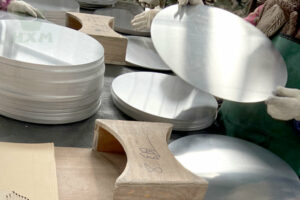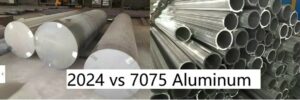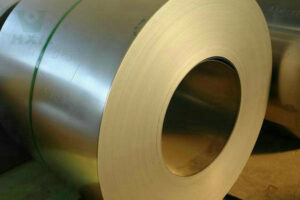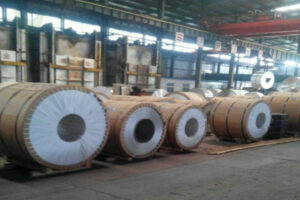When understanding the properties of aluminum alloys, one of the most important factors to consider is its density. Whether you are an engineer, manufacturer, or supplier, understanding the density of aluminum alloys can have a significant impact on your decision-making process. In this comprehensive guide, we will take a deep dive into the density of aluminum alloys, its effects, and how it affects aluminum metal suppliers, manufacturers, prices, and stock. After checking out this article, you will have a thorough understanding of why aluminum density is important and how it can affect your purchasing decisions.
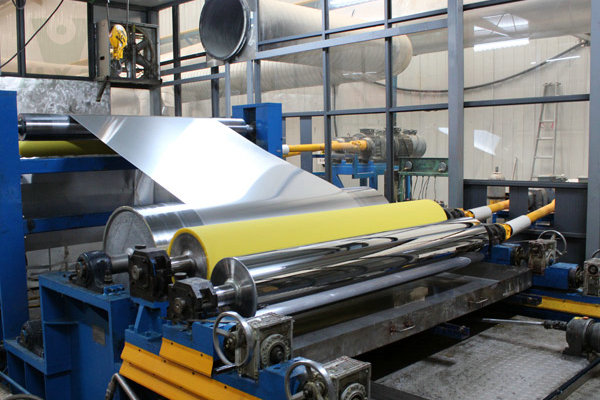
Introduction to Aluminum Alloy
Aluminum alloy is a versatile material used in a wide range of industries including aerospace, automotive, construction and electronics. Its popularity stems from its excellent combination of strength, light weight and corrosion resistance. However, one of the most critical characteristics that determines its suitability for a particular application is its density.
What is Density?
Density is a fundamental physical property of any material, defined as its mass per unit volume. In simple terms, it tells us how much matter is crammed into a given space. The density of a material is usually expressed in grams per cubic centimeter lbm / in3 (g/cm³) or kilograms per cubic meter (kg/m³).
For aluminum alloys, density is a critical factor as it directly affects the material’s weight, strength, and overall performance in various applications.
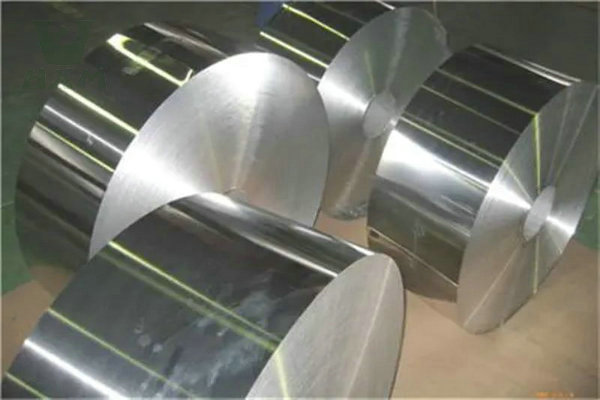
Why Density Matters in Aluminum Alloy?
The density of aluminum alloys is an important consideration for the following reasons:
Weight Considerations: In industries such as aerospace and automotive, where weight reduction is critical, the density of aluminum alloys plays a major role. The lower the density, the lighter the part, which can improve fuel efficiency and performance.
Strength-to-Weight Ratio: Aluminum alloys are known for their excellent strength-to-weight ratio. The density of the alloy affects this ratio, making it a key factor in many buyers’ selections.
Cost Efficiency: The density of aluminum alloys affects production costs. Materials with lower density may require less raw material, potentially reducing costs.
Manufacturing Processes: The density of aluminum alloys affects various manufacturing processes, including casting, extrusion, and machining. Understanding density helps manufacturers optimize these processes for better results.
How to Calculate Density of Aluminum Alloy?
The density of aluminum is typically 2.7 g/cm³. If you need to calculate the density of a specific aluminum object, you can use the following formula:
Density Calculation Formula:
Density= Mass/Volume
Steps:
Measure the Mass (m): Use an electronic scale or precision balance to measure the mass of the aluminum object in grams (g) or kilograms (kg).
Calculate the Volume (V):
- If the aluminum object has a regular shape (e.g., rectangular block, cylinder), use geometric formulas:
- Rectangular Block: V=Length×Width×Height
- Cylinder: V=π×Radius2×Height
- If the object has an irregular shape, you can use the water displacement method: Submerge the object in a graduated cylinder filled with water. The volume of water displaced equals the volume of the object.
- If the aluminum object has a regular shape (e.g., rectangular block, cylinder), use geometric formulas:
Calculate the Density:
Density= Mass/Volume
Example:
If an aluminum block has a mass of 540 g and a volume of 200 cm³, then:
Density=540 g/200 cm³=2.7 g/cm³
This matches the standard density of aluminum.
Factors Affecting the Density of Aluminum Alloy
Several factors can affect the density of aluminum alloys:
Alloying Elements: Adding different elements such as copper, magnesium, silicon, and zinc can change the density of aluminum alloys. For example, adding copper increases density, while adding magnesium decreases density.
Heat Treatment: Heat treatment processes can change the microstructure of an aluminum alloy, affecting its density. For example, annealing can reduce density by creating a more uniform grain structure.
Impurities: The presence of impurities in an alloy can also affect its density. Aluminum alloys with higher purity tend to have lower densities.
Manufacturing Process: The way an aluminum alloy is processed, such as casting, rolling, or extrusion, can affect its final density. For example, an extruded aluminum alloy may have a slightly different density than a cast aluminum alloy.
Density of Common Aluminum Alloys
| Aluminum Alloy | Density (lb/in³) | Density (g/cm³) | Density (kg/m³) | Density (kg/mm³) | Density (g/mm³) |
|---|---|---|---|---|---|
| Aluminum 1100 | 0.0975 | 2.71 | 2710 | 2.71 × 10⁻⁶ | 0.00271 |
| Aluminum 2024 | 0.100 | 2.78 | 2780 | 2.78 × 10⁻⁶ | 0.00278 |
| Aluminum 5052 | 0.0965 | 2.68 | 2680 | 2.68 × 10⁻⁶ | 0.00268 |
| Aluminum 6061 | 0.0975 | 2.70 | 2700 | 2.70 × 10⁻⁶ | 0.00270 |
| Aluminum 7075 | 0.101 | 2.81 | 2810 | 2.81 × 10⁻⁶ | 0.00281 |
Applications of Aluminum Alloy Based on Density
The density of an aluminum alloy plays a crucial role in determining its suitability for various applications. Here are some examples:
Aerospace: Lower-density aluminum alloys, such as 5052 and 6061, are preferred in the aerospace industry where weight reduction is critical. These alloys help reduce the overall weight of an aircraft, thereby improving fuel efficiency and performance.
Automotive: The automotive industry also benefits from the use of low-density aluminum alloys. Components such as engine blocks, wheels, and body panels made from these alloys help reduce vehicle weight, improve fuel efficiency, and reduce emissions.
Construction: In the construction sector, moderately dense aluminum alloys, such as 6061, are used for structural components. These alloys offer a good balance between strength and weight, making them ideal for building frames and supports.
Electronics: The electronics industry often uses lower-density aluminum alloys for housings and heat sinks. These alloys offer excellent thermal conductivity while keeping the overall weight of electronic devices low.





How Density Affects Aluminum Suppliers and Manufacturers?
For aluminum suppliers and manufacturers, knowing the density of aluminum alloys is critical for the following reasons:
Alloy Material Selection: Aluminum suppliers need to offer a range of aluminum alloys with different densities to meet their customers’ varying needs. Knowing the density helps them recommend the right alloy for a particular application.
Inventory Management: Aluminum manufacturers need to manage inventory effectively, and knowing the density of aluminum alloys helps them estimate the weight and volume of material needed for production.
Cost Estimation: The density of aluminum alloys affects the cost of raw materials. Suppliers and manufacturers need to consider density when estimating costs and pricing products.
Quality Control: Ensuring that aluminum alloys meet the required density specifications is critical to maintaining product quality. Manufacturers need to implement strict quality control measures to verify the density of their materials.
Looking for high-quality aluminum alloy? Contact us today to find the best suppliers, manufacturers, and stock availability at competitive prices!
Pricing Considerations: Density and Cost
The density of aluminum alloys can have a significant impact on pricing. Here are some factors to consider:
Raw Material Costs: Raw material costs are often calculated based on weight. Aluminum alloys with lower densities may require less raw material, resulting in lower costs.
Processing Costs: The density of an aluminum alloy can affect processing costs. For example, alloys with lower densities may be easier to process, which can result in lower labor and equipment costs.
Shipping Costs: The weight of an aluminum alloy can affect shipping costs. Alloys with lower densities are lighter, which can result in lower shipping costs.
Market Demand: The demand for a particular aluminum alloy can affect its price. Alloys with the density required for high-demand applications may command higher prices.
Looking for high-quality aluminum alloy? Contact us today to find the best suppliers, manufacturers, and stock availability at competitive prices!
Stock Availability and Density
Stock availability is another key factor affected by the density of aluminum alloys. Here’s how:
Inventory Turnover: Aluminum metal suppliers need to effectively manage inventory turnover. Understanding the density of aluminum alloys helps them accurately forecast demand and inventory levels.
Lead Time: The density of aluminum alloys can affect lead times. For example, alloys with lower density may be in higher demand, which can result in longer lead times if inventory levels are not managed properly.
Custom Orders: Certain applications may require custom aluminum alloys with specific densities. Suppliers need to be prepared to fulfill these orders, which may require maintaining specialized inventory.
Global Supply Chain: The density of aluminum alloys can affect the global supply chain. Suppliers need to consider density when sourcing materials from different regions to ensure consistent quality and availability.
Our company keeps a large inventory of aluminum products year-round. Contact us now to see if our inventory products meet your requirements. Our production cycle is usually 5-10 days.
In Conclusion
The density of aluminum alloys is a critical property that affects their performance, cost, and suitability for a variety of applications. Whether you are a supplier, manufacturer, or end-user, understanding the density of aluminum alloys can help you make informed decisions that optimize performance and cost-effectiveness.
From aerospace to automotive, construction to electronics, the density of aluminum alloys plays a key role in determining their applications. Suppliers and manufacturers must consider density when selecting materials, managing inventory, and pricing their products. By doing so, they can meet the varying needs of their customers while maintaining a competitive advantage in the market.
As you navigate the complexities of aluminum alloy density, remember that it’s not just about the numbers, but how those numbers translate into real-world performance and value. Whether you are looking for suppliers, manufacturers, prices, or inventory, understanding the density of aluminum alloys is key to making the right choice for your business.
